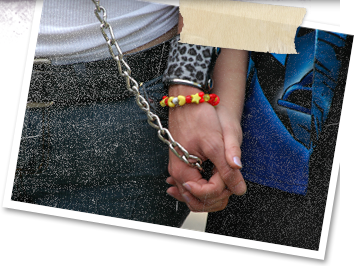
What is consent?
ConsentConsent
Is a free agreement between everyone involved in any sexual experience. A free agreement can not happen when someone is verbally, physically or emotionally forced or threatened, tricked, if someone is too wasted on drugs or alcohol or if they are under the age of 16. A free agreement means that everyone was keen on everything that was happening and they all knew what was going on. is a freely given agreement between those involved in any sexual experience.

